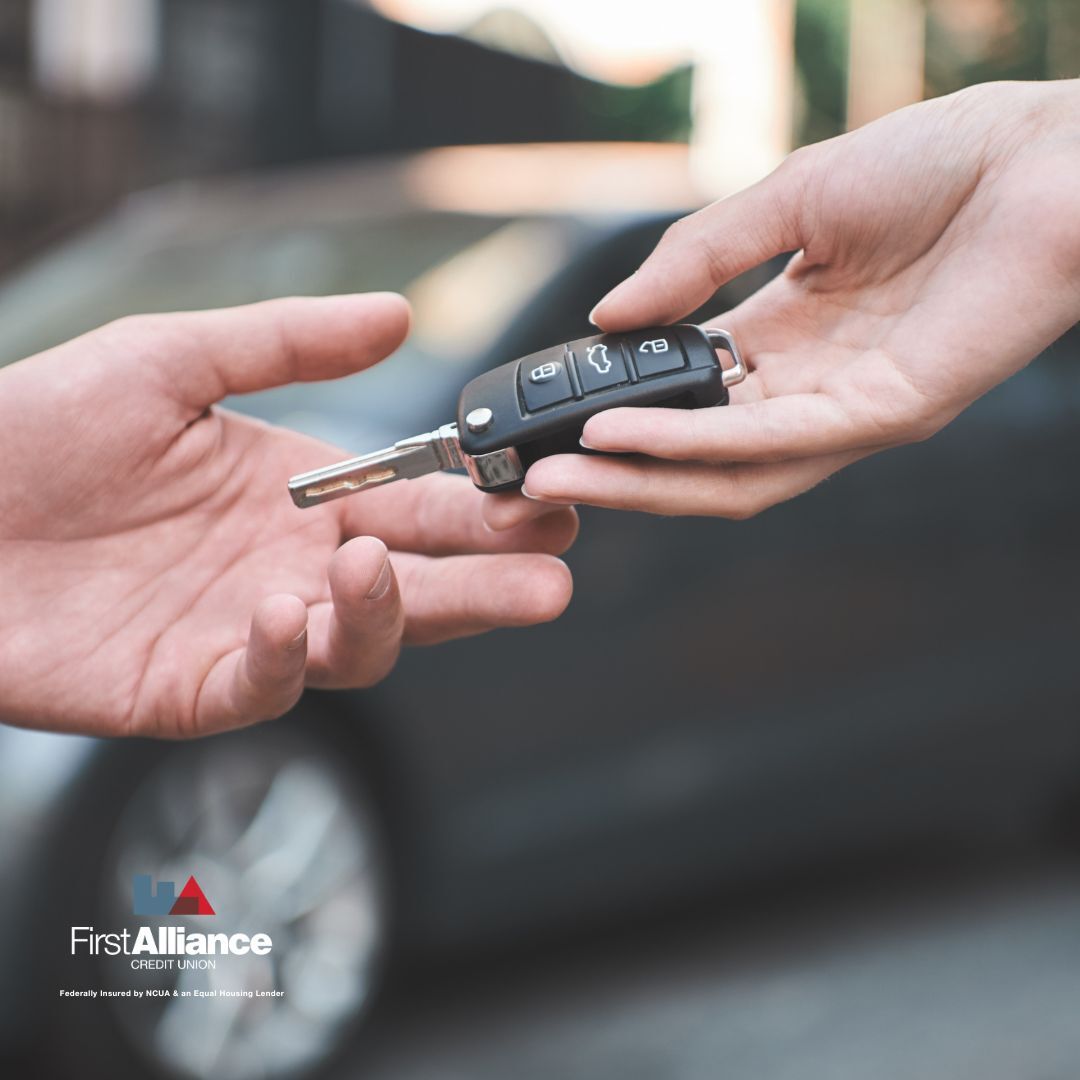Credit Builder Loans: What Are They and How Can They Help You?
Building credit can feel like trying to solve a puzzle with missing pieces. If you’re just starting your financial journey or rebuilding after some...
9 min read
 Kamel LoveJoy
:
Aug 26, 2025 5:00:00 AM
Kamel LoveJoy
:
Aug 26, 2025 5:00:00 AM

If your credit is less than perfect and you need a car, you are not alone. Life happens. Maybe a medical bill went to collections or a job gap made on time payments tough. The good news is that you can still get where you need to go with smart steps, honest info, and a lending partner that treats you with respect.
Let’s walk through how bad credit auto loans work, how to figure out how much car you can afford, and how to shop for a reliable vehicle without getting stuck in a costly deal. We will also cover protection options like GAP protection and extended car warranties, plus when it can make sense to refinance a car loan later.
Jose works a steady job and needs a reliable ride to keep it. His old car quit and repairs cost more than the car. His credit dipped after a few late payments, so he felt nervous about applying.
He started with his budget. He used First Alliance Credit Union’s auto loan payment calculator to test payments and pick a safe price. He brought pay stubs, proof of address, and a list of bills to his loan appointment.
With real numbers in hand, shopping felt easier. He skipped cars that did not fit the plan, asked for the out the door price, and took long test drives. He chose a solid used car that matched his budget.
Jose set up automatic payments and reminders. He plans to ask about refinancing after six to twelve months of on time payments. The result is simple. He drives a safe car, keeps his budget intact, and has a clear path to better terms.
A bad credit auto loan is simply a car loan offered to someone with a lower credit score or a short credit history. Lenders look at more than a number. They look at income, debts, and the size of your down payment. Credit scores still matter because they help lenders estimate risk. Credit scores can affect car loan interest rates and the length of the loan. That is why planning matters.
You can get ready by checking your budget first. Decide between buying a new car or a reliable used one. Ask yourself why you need the car, how many miles you drive, and what a safe payment looks like for your life. This helps you avoid choosing based only on new car prices or shiny features.
Lower credit does not stop you from getting a car. It changes the terms you are offered. That usually means a higher rate, a tighter approval, or a smaller maximum loan amount. The fix is to plan ahead so you keep your payment safe today and set yourself up for better terms later.
This quick example shows why planning matters. For a $15,000 loan over 60 months, a higher rate can raise your payment a lot. At 8%, the payment is about 304%. At 19%, it is about $389. That is around $85 dollars more each month and about 5,100 dollars more in total interest over the life of the loan. These are illustrations, not offers, but they show why every point matters.
Your score is important, but it is not the only thing. Lenders also review your income, debts, and the car itself. A larger down payment and a reliable car with reasonable miles can help you qualify and improve your terms. Stable time on the job and on-time payments on other accounts also help show you are ready.
Before we list details, know this. You can control more than you think. Small changes can move you into a better tier and bring down your payment. That is good for your budget now and makes refinancing easier later. Read the items below so you can focus on the ones that move the needle fastest.
Debt to income: Lower monthly debts compared to income improve approval odds and terms
Loan to value: A bigger down payment lowers the amount you borrow compared to the car’s price
Vehicle factors: Newer cars with clean titles and normal mileage are easier to finance
Payment history: Recent on-time payments signal lower risk and can help you qualify
Documentation: Clear proof of income and address speeds approvals and reduces back and forth
You do not need a perfect score to make progress. You need a short plan you can actually do. Pick two or three items below and knock them out before you apply. Then use our calculator again to see how your payment improves.
Small steps first, because they work. Paying down a credit card under 30% of its limit can lift a score quickly. Fixing errors on your report helps too. Saving even a small down payment can move you into a better bracket and cut your monthly cost.
Pay down revolving balances below 30% of each limit, then below 10% if possible
Make every bill on time for the next two to three months and set up autopay where you can
Dispute clear errors on your credit reports and add a short positive history if available
Save a small down payment to lower your loan to value and reduce your payment
Avoid opening new accounts until after your auto loan is set and stable
You can compare offers without doing harm. When you apply for auto loans within a short window, many scoring models group those checks together. Aim to do your applications within about two weeks. That way you can compare real numbers while limiting the impact on your score.
Why this helps you later
Better habits now make refinancing easier. After six to twelve months of on-time payments, ask First Alliance for a refinance estimate. If your score improves and the market is better, you may cut your rate or shorten your term, which saves interest and keeps your budget strong.

Know your safe payment in minutes so you avoid stress later. Start with your real budget, then test payments in First Alliance Credit Union’s auto loan payment calculator to lock in a price you can actually keep. Seeing the numbers first helps you shop with confidence.
You will make a better choice if you plan your whole car cost, not only the payment. Include insurance, gas, and a small monthly amount for repairs. Remember that car loan rates change based on credit and market conditions. Longer terms can lower the payment but increase total interest. Shorter terms save interest but raise the payment. After you try a few scenarios, write down a target price that matches your budget. Then stick to it when you shop.
Walk in prepared so approval is smoother and offers improve. Having your documents ready shows you are serious and helps the lender verify details quickly. Ask if the application will use a soft review or a hard credit check so you know what to expect. Bring your questions and take notes during the appointment. Keep copies of everything so you can compare offers later with a clear head.
Government photo ID that is current
Recent pay stubs or direct deposit history to show income
Proof of address like a utility bill or lease
Insurance information or your plan to add coverage
A list of debts and monthly payments so the lender can calculate your budget
Shop with confidence and skip costly mistakes. Use a simple plan to compare cars, protect your wallet, and choose the one that fits your life today. You do not have to rush, and you do not have to settle for a bad deal.
Visit more than one dealership if you can, and never feel pressured to sign. If you are looking at used cars, focus on reliability first and price second. If you are looking at new models, compare features that matter for safety and cost of ownership. You can still enjoy the process without overspending.
Check the vehicle history before you say yes. Many listings include a history report that shows accidents, title issues, and mileage. If you are unsure how to read it, ask the seller or your lender to help. Take a test drive on both city streets and highways. Listen for noises and check that all lights and features work. A trusted mechanic’s inspection is worth the time for peace of mind.
Before you choose a car, make a quick checklist. A checklist keeps your head clear and helps you compare options without stress. It also gives you a record you can review later with family or a friend. Read each item and decide if the car fits your needs right now.
Price fits the number from your calculator, with tax and fees included
Reliable make and model with good safety features
Clean title and a clear vehicle history report
Reasonable mileage for the year and a solid test drive
Insurance quote that fits your monthly plan

Protect your budget from surprise losses. GAP (Guaranteed Asset Protection) can wipe out leftover loan balances if your car is totaled or stolen, which keeps you from owing on a car you no longer have. Then decide if an extended warranty fits your repair risk.
At First Alliance Credit Union, you can add GAP at signing so coverage starts right away and the cost can be rolled into your monthly payment. Our team will help you decide if it fits your budget, down payment, and mileage plans. If you ever need to use it, we guide you through the claim and the documents you will need.
It helps to go in with a short checklist. These questions make sure you understand how GAP will work for your loan and your life. Bring them to your appointment and write down the answers so you can compare options with a clear head.
When does GAP make the most sense for me, based on my down payment and mileage plans
Can I add GAP now, and how would the cost be included in my payment
What happens to GAP if I pay off early or refinance with First Alliance later
Does the coverage include any limits or exclusions that I should know about
Who helps me if I ever need to file a claim and what documents will be needed
You may also see an extended car warranty. This is a service contract that may cover repairs after the factory warranty ends. Always read what is covered, what is not, the deductible, and how to use the coverage. Choose protection that matches your finances and the car’s age and mileage.

Get breathing room and keep your plan on track. If you are working hard to stay current and an unexpected bill pops up, talk to us early. We have a couple of options that can help without losing momentum.
Our Skip a Pay Program lets eligible members with an auto or personal loan at First Alliance defer loan payments up to two times per year. Interest still accrues during the skip period and your term may extend, so we will walk you through the tradeoffs before you decide. Requests are subject to approval and program guidelines.
If you need a small boost to handle a short term expense, ask about our $1,000 No Hassle Loan. It is designed to be simple, with a clear payment plan you can build into your monthly budget. This option is also subject to approval and credit qualifications.
Before you choose either path, look at your full budget and timeline. A quick talk with a First Alliance advisor can help you pick the option that fits your situation today and keeps you on track for tomorrow. If you are not sure which way to go, bring your pay stubs and a list of bills and we will map it out together.
Jordan gives you expert advice on navigating the auto loan process!
Get the new car you want without regret. Set your price first, avoid extras you will not use, and verify the payment still fits before you say yes. If a salesperson suggests a higher trim, run the new numbers in the calculator and see if the change still fits. You can always say no and keep looking.
If you are considering an RV or camper for work or family trips, protect your main budget first. Compare total costs, storage, and insurance. If money is tight, wait until your score and savings improve. These loans may have different terms and may require larger down payments, so plan with care before you add a big toy.
Decide if an RV or camper is a need or a want
Price storage, insurance, and maintenance before you shop
Use a loan calculator to test different terms and totals
Keep your main vehicle reliable first, then add extras later if the budget allows
Reduce your payment or total interest once your history improves. After six to twelve on time payments, ask First Alliance for a refinance estimate and pick the term that fits your goals. Refinancing simply replaces your current loan with a new one.
Do not panic if your first offer is not perfect. Ask the lender to explain which parts of your file are holding you back. Sometimes a small down payment makes a big difference. A few months of on time payments on a starter loan can also open doors to better terms. You can come back to refinance your auto loan after you build a stronger history.
Give yourself a plan to get ready for refinancing. Set up automatic payments so you never miss a due date. Keep your credit card balances low. Avoid applying for other big loans unless needed. When you are ready, talk with First Alliance Credit Union about your options and the steps to apply. You will bring many of the same documents you used the first time.
Make at least six to twelve months of on time payments
Check your credit and fix any errors you find
Gather pay stubs and proof of address again
Ask for a payment estimate that fits your updated budget
You do not need perfect credit to make a smart car purchase. You need a plan, the right tools, and a lender who will listen. Use First Alliance Credit Union’s calculator to test payments. Gather your documents. Shop with confidence. Ask about protection options like GAP protection only if they fit your budget. Keep your eyes on the goal, which is safe transportation you can afford today and better terms tomorrow.

Building credit can feel like trying to solve a puzzle with missing pieces. If you’re just starting your financial journey or rebuilding after some...

Everyone says they could use some extra money, but thanks to the COVID-19 pandemic even a couple hundred dollars can help someone make rent or afford...

We know everyone manages their money a little differently. Some people prefer a more self-service style with online banking, while others like coming...